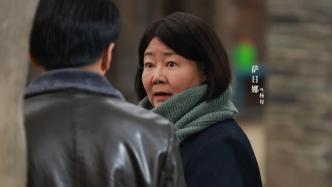
In "The World", the kind and generous mother of the Zhou family is one of the most out-of-the-box images Sarina has created in recent years. After filming "The World", Sarina received another completely different mother role: the role of Yang's mother in "Love in Nine Bends". Sarina has seen many director Liu Jiacheng's works before, "very unique style, he talks about the ups and downs of life, but not very heavy, there are humorous and warm things in it."
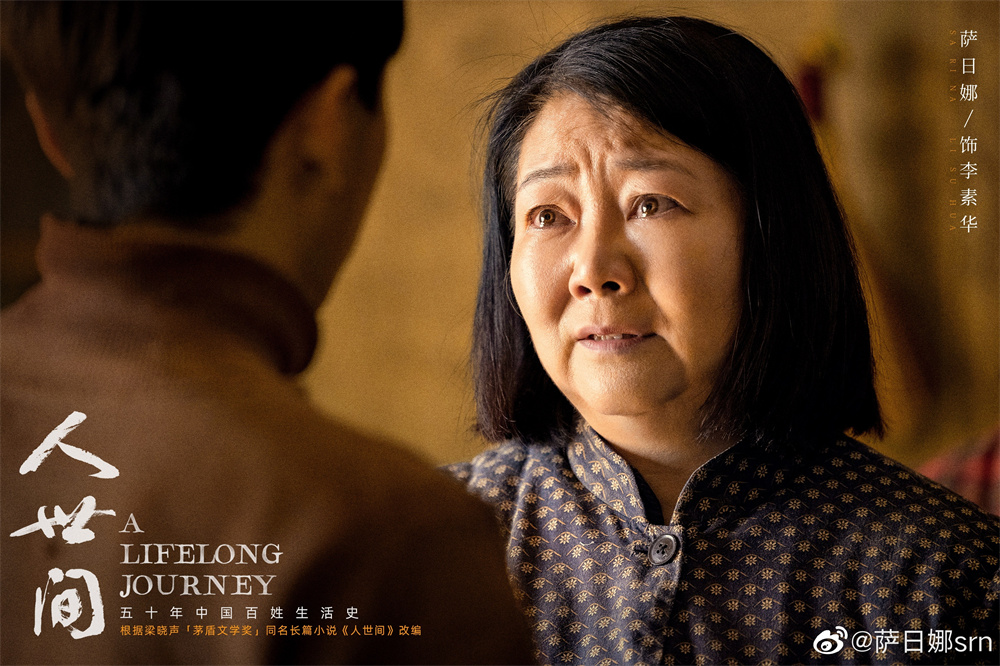
"The World" stills, Sarina as Li Suhua
Sarina, who grew up in Inner Mongolia, came to Beijing to work in 1989. At that time, she temporarily lived in her aunt's house, a courtyard house with 16 families. During the day, there are often hawkers hawking outside the courtyard. Hearing the long voice, the little cousin went out to buy sauced tofu with a bowl; in the evening, everyone cooked together in the small kitchen built in the courtyard. A big tree, a small table is placed under the tree, the neighbors eat together and talk about homework, full of fireworks in the world. Sarina, who just arrived here, couldn't understand the fast and lazy pronunciation of Beijing movies, so she often laughed out loud when she heard it, "Beijing people are so fun!"
Watching the script of "Love in Nine Bends" reminded Sarina of those years. "Old Beijing people have a lot of rules. They pay attention to being reasonable and dignified. The rules are often unbreakable, and they are particular about eating and drinking tea. But this story happened to be written during the period of reform and opening up. People’s living conditions are very interesting." Sarina said, "This story is a story in Beijing, but it can also reflect the whole of China. I still want everyone to see how some people treat love in that era of change. , to the children, to the family, to others."
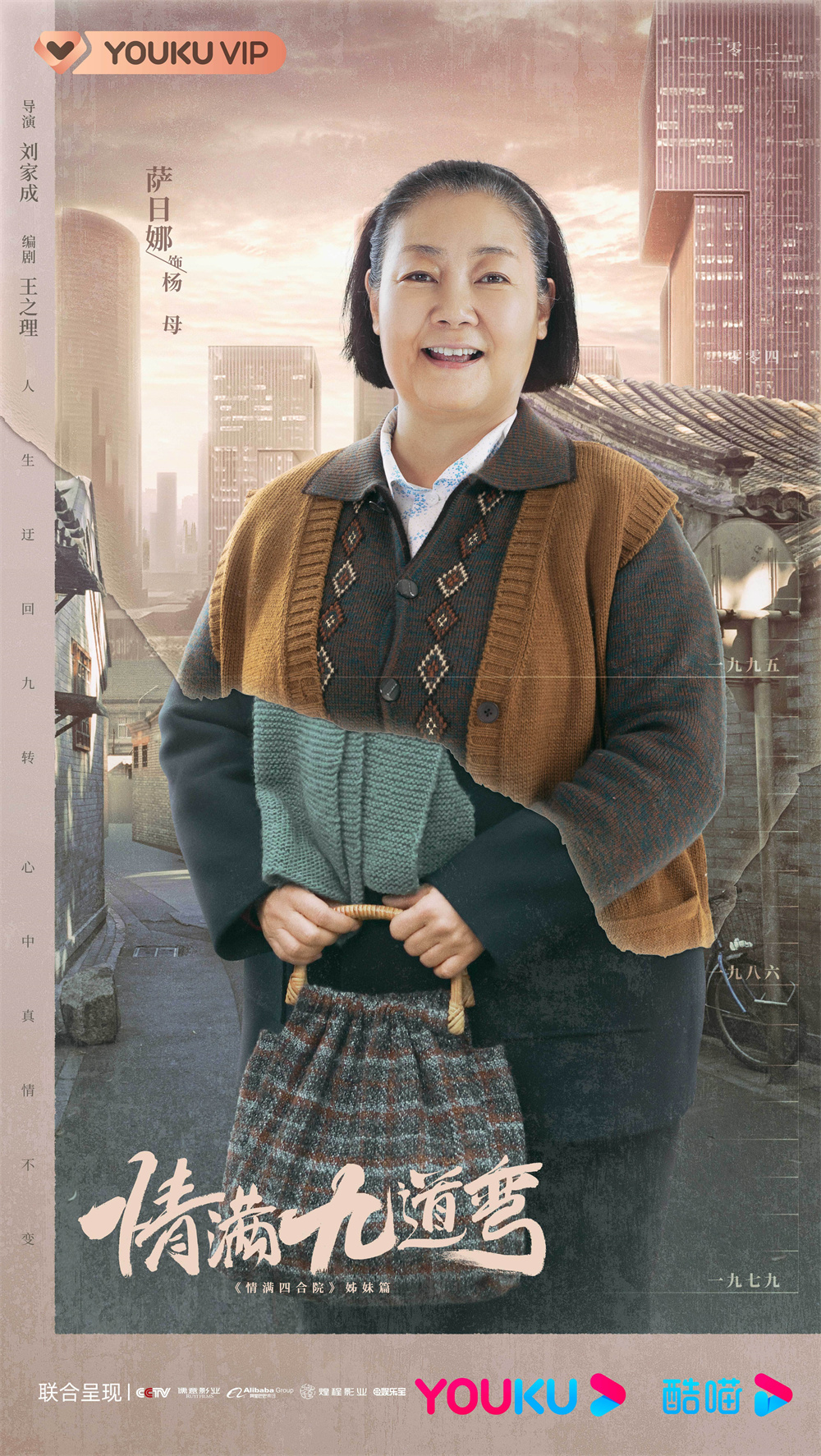
"Love is full of Nine Bends" character poster, Sarina as Yang's mother
"Functional" mother
Mother Yang, played by Sarina, is the most "hateful" character in the whole play.
She is a domineering mother who takes care of her eldest and six children, strongly intervenes in their lives, insists on one thing, and interferes with the protagonist Yang Shumao's life choices and love and marriage several times, which has caused countless viewers to complain. Undoubtedly, this is a functional character, which creates obstacles for the protagonist. Functional characters are often written to the extreme to facilitate the development of contradictions in the script. But for actors who interpret such functional characters, this brings natural difficulties: how to balance the functionality and richness of characters?
In this regard, Sarina is very clear, "It is difficult to simply define a role as good or bad. Human nature itself is complex. The complexity of a character often exists in her age and class, her character, and the way she expresses love." She said, "Many mothers who came over in that era controlled every child as the patriarch. The traditional parents of that era had some suffocating ways of loving, and they had to intervene in everything, unlike the current parents, who let Children grow up freely. This is the parent-child relationship of that era, so many young audiences do not understand it now."
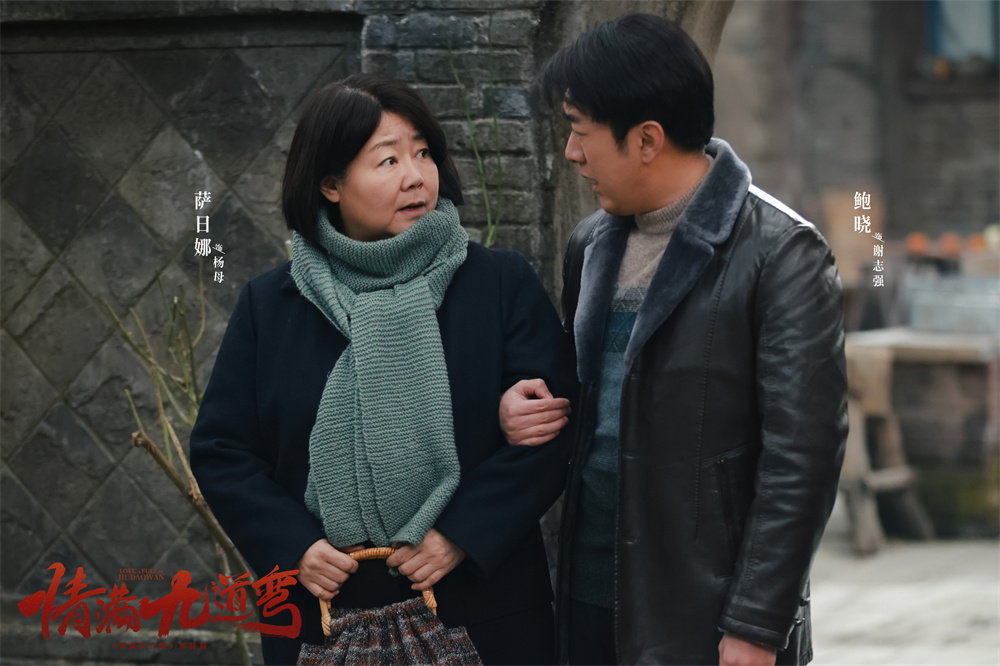
Stills of "Love in Nine Bends"
For Yang's mother, Sarina complemented the internal logic and rationality of the characters in addition to functionality. Originally, in the script, when Yang Shumao’s business failed in the most difficult time, it was the third sister who gave him 50,000 yuan to support him, but Sarina chatted with director Liu Jiacheng, and her mother set up obstacles for Yang Shumao countless times in front of her, and asked for money countless times. It's about to lose the money's eyes, so at this time, can the money be given by the mother? "This can explain to the audience why she asked for money up front? She actually saved money for her youngest son. She knows that business cannot go smoothly. What if her son encounters difficulties?"
When giving her son emergency money, Mother Yang put down 50,000 yuan and said coldly: Take the money and get out. Not a word of gentle comfort. In Sarina's view, this is to tell her son: It's no big deal, it's been prepared for you, and with this money, you will definitely be able to get up again. "This is where this mother is tough. What she firmly conveys to her son is: you will not fall, you have to keep going."
"Our generation and the previous generation seldom sit down and say I love you mom, I love you dad, and our parents treat us very little. They don't know how to express this kind of emotion. It is an action to prove that you are How important it is in my heart. This is the expression of a certain person in a certain era."
As for Yang Shumao’s various obstacles to marriage and love, Sarina carefully analyzed the logic of his characters, "Shi Xiaona and their family are not in the same household, and her son is Gao Pan. She is worried that her son will suffer when he gets married. Ye Fei, she and Ye Fei’s parents There is a knot that cannot be untied for decades." In the play, a pair of glass silk socks stolen by her is a metaphor for the cracks in human nature in extreme scenes in special times. "And she couldn't face the moral flaws in her heart."
But these, Sarina's replay after the event, firstly, it was not clearly reflected in the lines, and secondly, there were some deletions in the post-editing. Now it seems that the characters are less complete, and the audience may indeed find it difficult to understand.
Often when audiences watch period dramas, they will not look at the characters of that era with the value standards of that era, but with the current standards. But in period dramas, most of the characters have limitations of the times. Can the limitations of the times be understood by the current audience? For actors, should this limitation be presented in an authentic way, or should it be surpassed so that the current audience can understand and empathize better? This is also Sarina's thinking.
"The script of "Love is full of nine bends" is very real. Yang Shumao's mother is really a character in that era, but now the audience will find it strange. This also makes me think, as a creator, what is really going to be given to the audience ? Is it authenticity, or empathy that is more acceptable to the audience?"
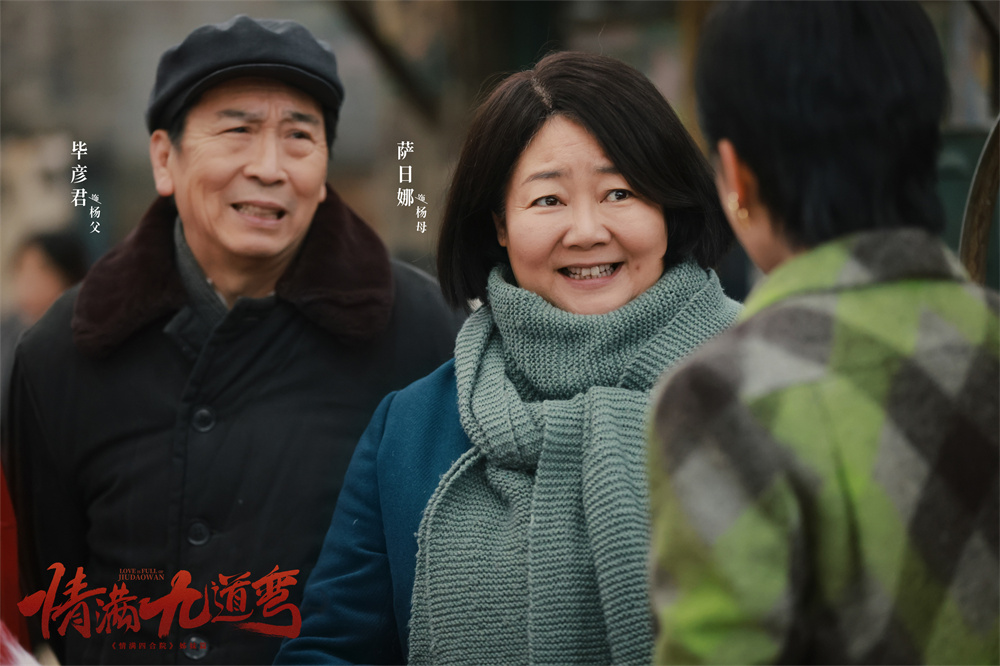
Stills of "Love in Nine Bends"
"I'm also worried"
Sarina said frankly that when she first got the script, she was very apprehensive about this role. The mother portrayed in "The World" moved many audiences very much, and they regarded this character as the embodiment of a perfect mother. It remains in the hearts of the audience, and no one wants to see the mother in their minds play a particularly bad person. It has already established such an image, and then breaks it, and I feel a little sorry for the audience."
"I don't know if the audience can accept such a mother, and I'm worried that the audience will hate me. On the barrage, the audience said that Teacher Sa's performance is too bad. She must be like this in life. I am very wronged." Said Sarina . But even knowing that it might bring some negative voices today, Sarina chose to take this role at that time.
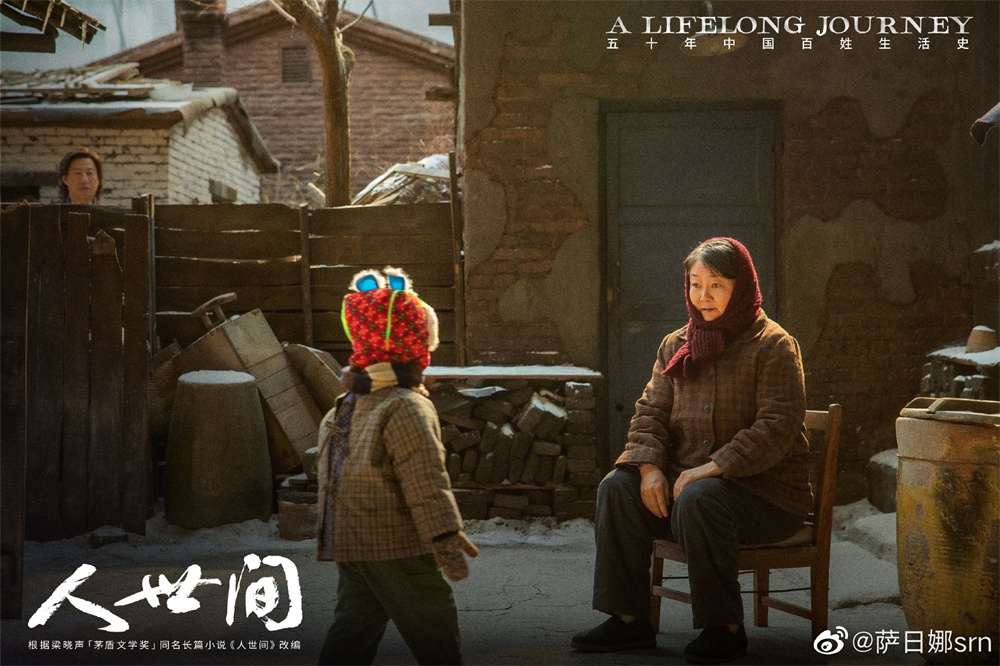
Stills of "The World"
Sarina said frankly that many of her roles are "mothers". "The identity of a mother, her maternal love, her relationship with her children and family, may have accounted for 50% or more of the characters in the script, leaving little room for her to shape herself as a woman. In my only In some creative spaces, I hope that the characters I play will be richer." Sarina said, "I will put my understanding of life into the characters, I am already in my fifties, and my understanding of life is the same as that of 20, A 30-year-old child is different, and it is this difference that allows me to interpret a piece of history from another angle, a person under a certain condition, a state of existence, and a different mother.”
"If I keep playing mothers like in "The World", my space will become smaller and smaller. As an actor, maybe I play mothers, wear similar clothes, and act in similar eras, but I especially I hope to leave a completely different role in the hearts of the audience."
Therefore, what is important is not the image of the actor, but the character itself and the needs of the plot. Completing the character's dramatic tasks and dramatic logic is the first priority. Whether the character is likable or not, how to choose from the limitations of the times, and whether the audience can empathize are actually ranked second.
"I have to try to understand this character, understand her living conditions, understand why she interferes with her son's marriage and career, and try my best to interpret this character more fully. The audience now thinks that Da Mao is too nice , His mother is too bad, and the character has fulfilled its function." Sometimes, the limitations of the times in film and television dramas do not necessarily have to be the only way to "break the limitations and make contemporary audiences empathize", but can also be presented objectively. This limitation allows the audience to criticize and reflect to complete the "transcendence" of the times and limitations.
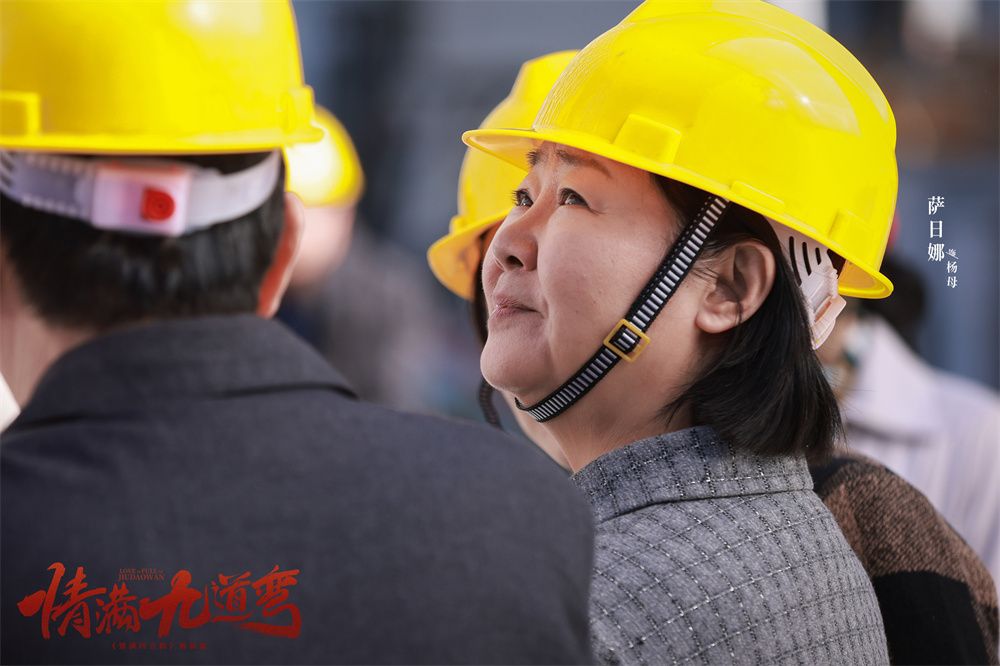
Stills of "Love in Nine Bends"
destined career
When filming "Love in Nine Bends", there was a scene where the frame behind the sofa suddenly fell and hit Sarina on the head, bleeding profusely on the spot. The doctor said that the stitches had to shave off that piece of hair, and Sarina immediately became anxious: don't touch my hair! I have to play with my hair! The doctor repeatedly persuaded: In case of infection! Sarina still refused to let her die, "Sure enough, I still got infected later on. There is no way I can only wear hoods and hats in the next few episodes. I really feel sorry for everyone." In Sarina's view, the profession of an actor is to put Use your own body as the material for creation.
She described the performance as: when receiving a character, one must draw out one's own soul in order to put the character's soul in. "At that moment, you don't exist. What exists is another person. Her behavior, her thoughts, and her expressions are quite intoxicating." After staying like this for three to five months, I finished the filming Play, then invite the characters out, and get your soul back. "This process is both joyful and tormenting for us. When you get a script until it is presented, the whole process is actually very fascinating. This process is the process of life."
Her standard for good acting has remained the same: sincerity. "Facing your own voice sincerely and facing the character sincerely, you can give this character sincerity, and this kind of sincerity can be felt by the audience. Whether this mother is a mother who makes people cry, or a mother who makes people hate Mom, whether it’s sincere or not, the audience will feel it.”
"This business is a business of fame and fortune, but chasing fame and fortune is easy to lose the middle process," she said, "As a living individual, I am enjoying my own life experience bit by bit, and I also insist on realistic performances. Way. If one day I can’t remember the lines, maybe I should leave; or one day what I stick to is no longer suitable for the development of this era, I would rather be out, but I will not bow my head.”
This kind of love for acting, Sarina feels like fate, "I can't do anything else in my life, and I can't do it well. I am destined to only be an actor in this life, which is the happiest and happiest thing for me. What’s more, God has been very kind to me, giving me a favorite profession, and allowing me to continue to engage in this profession.”
Sarina's father is the director of the Inner Mongolia Drama Troupe, and her mother is a screenwriter. She remembers that when she was a child, the uncles and aunts in the troupe would get up at six o'clock in the morning to practice voice and kung fu. At that time, the adults in the regiment had no conditions to put their children in the nursery. At that time, there were about a dozen children, and the adults had no time to take care of them. They were all busy with rehearsals, makeup, and scenery. The children played hide-and-seek on and off the stage every day. Sarina grew up in the rehearsal field, and sometimes she would run over to correct her uncles and aunts when they made mistakes in their lines.
"Once, the adults were facing the light on the set, and I just ran to the stage to play. Suddenly, a light came on and hit me. At that moment, I stood in the center of the stage, facing the light, and felt Something lit up in my heart."


